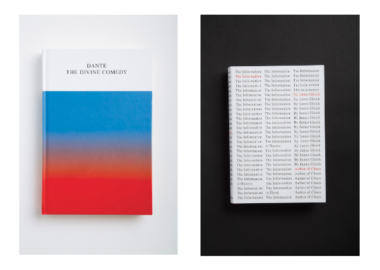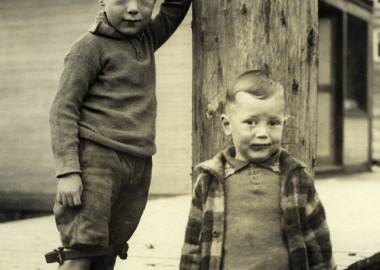This is a guest post from one of ECHO’s esteemed writers, John Lawrence Reynolds.
Writing is a lonely business. You already know this because…well, because we writers keep grumbling about it, non-stop. Maybe it’s to cover our lack of social skills. Or add mystique to an often humdrum existence.
Becoming a writer shouldn’t mean adopting the social standards of your average monk. In fact, it mustn’t. The act of writing somehow should connect with the real world, the one beyond our awareness and our window.
Ah, but can you see the dichotomy here? Writers must work in solitude, unless you believe creative writing is the product of committees. (Hint: It’s not.) Yet we need to immerse ourselves constantly in life before withdrawing to our garret or den or kitchen table to tap on keyboards or scribble in notebooks. Not, by the way, life as witnessed from a corner of Starbucks or a park bench. We need participation in life experiences that extend our mind, focus our vision and sharpen our perception. We need feats that challenge and frustrate us, hills to push dreams to their summit knowing they’ll tumble back to earth, doing it over and over in search of perfection.
We need music.
Not listening to it. Performing it.
All art aspires to the purity of music.[1] Walter Payter wrote that phrase 150 years ago in frustration. He had been trying to craft a perfect sentence. Writers encounter this problem constantly. Our most common reaction is to crush the sheet of offending text into a ball and fling it in the wastebasket. Or at the cat. Payter was above such juvenile responses. He wrote a timeless maxim that I have proved correct. Not that Payter needed my verification.
I love to write as much as ever, but time has brought a need to wake up my slumbering synapses. Something oddly satisfying and frequently frustrating.
So I bought a clarinet and took a few lessons. Then I joined a local concert band whose members share three common attributes: an urge to make music of a certain age and quality; the predominantly grey colour of our residual hair; and limited musical fluency.

Clarinets are complex wind instruments. You do not strike, pluck, strum or stroke them. You blow into them at various volume levels while closing and opening any of about two dozen keys in copious combinations. The result is either a.) a close approximation of the composer’s desired note; b.) an empty whisper emerging from an instrument that can cost as much as a decent used car; or c.) a piercing squeak. In search of a.), clarinet players must remain constantly aware of their breathing, their posture, the position of all ten fingers as well as glares and gestures from the orchestra conductor. This leaves little time to ponder the lunacy of politics, the state of their marriage, or if they remembered to take out the garbage this morning.
I practice my clarinet daily in a closed room to avoid traumatizing our cat, who assumes I create the various assaults on her ears as a form of punishment. Once each week I trek to a local community hall and join about 40 other band members. We spend two hours playing Broadway tunes and light classics. I sit among a dozen or so other clarinets plus an array of flutes, saxophones, trumpets, trombones, percussionists and one delightful tuba. The gender split is about 50-50 and the attitude is 100 percent positive. In fact, the band’s motto is, “Your best is good enough” – not a good adage for a class of MBA over-achievers perhaps, but we are beyond such transient concerns. Forget the “over” part. We’re just interested in achieving.
The path to converting notes on a printed page into music is rocky and meandering. We stumble and fall. Sometimes we wander off the trail entirely. Whenever this happens, those who know the way guide the lost souls back onto the route. Our venture is not solitary, after all. It is communal. Its goal is to generate, for at least a few moments, harmony and beauty in a world that appears to grow bereft of both day by day. Sometimes we have gigs, performing in church halls for charitable events and our own satisfaction.
And there are occasions–such occasions!–when the entire band, or just we dozen clarinet players, perform the music as closely to the composer’s intentions as we are likely to come, times when the melodies flow in perfect pitch at an ideal tempo, and we listen and participate at the same time, surprising ourselves with our abilities, and when the passage and the tune itself is complete we glance at each other, smiling and nodding, saying silently to each other Yes! Yes! It is truly magical.
With the conclusion of each rehearsal or performance we pack our instruments away, enquire about each other’s families and weekend plans, bid our goodbyes and set off for our homes. I settle myself at the computer, open my work file and resume my writing, using the same hands that recently stumbled through a Gershwin ballad to compose a corporate history or add another chapter to my novel.
So has performing music improved my writing?
I don’t know. I am aware, however, that it has enriched my life.
And that’s practically the same thing.
[1] His original line was All art constantly aspires towards the condition of music but time has a way of rounding off the sharper corners of philosophical expression.
John Lawrence Reynolds, a native of Hamilton, Ontario, claims the blue-collar work ethic of that once-industrialized city still runs in his blood. Indeed it may, for he has written and published more than 30 fiction and non-fiction books, earning several top awards along the way. He has also pursued careers in advertising, music, broadcasting and travel writing, adding this experience to his degrees in English and Psychology from McMaster University. John lives in Burlington, Ontario with his wife Judy and Molly, their absurdly spoiled cat.





